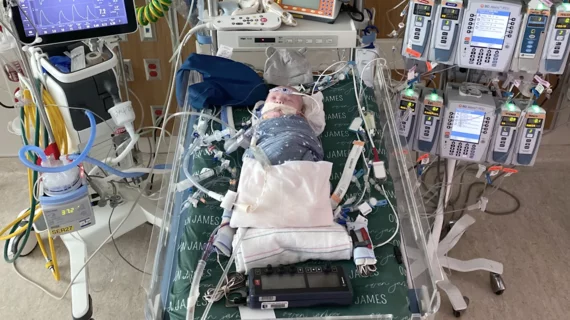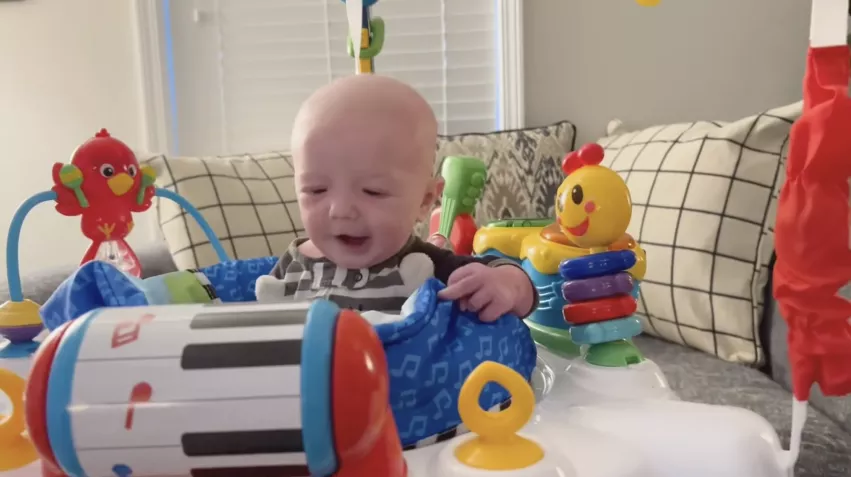Cardiac surgeons perform the world’s first partial heart transplant
Surgeons with Duke Health in Durham, North Carolina, have made a bit of history, performing what is believed to be the world’s very first partial heart transplant in a neonate congenital heart patient.
The patient was a newborn baby, Owen Monroe, who was born with truncus arteriosus. Owen’s two main heart arteries were fused together, and he had a leaky heart valve, which made the team at Duke Health fear he would not survive long enough to wait for a full heart transplant.
Joseph W. Turek, MD, PhD, Duke Health’s chief of pediatric cardiac surgery, led the surgery, taking living tissue and valves from a donor heart and implanting them so that they can grow with Owen as he ages instead of needing to be replaced over the course of multiple open surgeries.
“This procedure potentially solves the problem of a growing valve,” Turek said in a prepared statement. “If we can eliminate the need for multiple open-heart surgeries every time a child outgrows an old valve, we could be extending the life of that child by potentially decades or more.”
Due to the condition of the donated heart’s muscle, specialists had determined it could not be used for a full heart transplant. This partial heart transplant, however, ensured that the heart could still be used to potentially save another life.
“What’s particularly remarkable about this procedure, is that not only is this innovation something that can extend the lives of children, but it makes use of a donated heart that would otherwise not be transplantable,” Michael Carboni, MD, an associate professor in the department of pediatrics at Duke University School of Medicine and Owen’s pediatric transplant cardiologist, explained. Carboni added that partial heart transplants highlight “the ways in which we can use the incredible gift of donation to save more lives.”
The procedure occurred in April 2022. Months later, the team at Duke Health noted that baby Owen is doing quite well; the procedure seems to have been a success.
“As harrowing of an experience as it was for our family, we knew from the beginning that Owen was in the best hands,” Nick Monroe, Owen’s father, said in the statement. “Our greatest hope is that Owen’s success story will change the way organ donation and transplants are handled not only for congenital heart disease babies, but for all patients.


